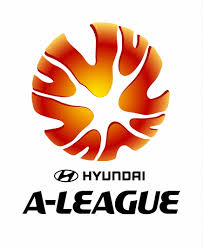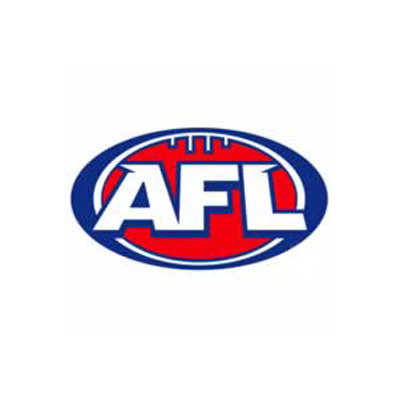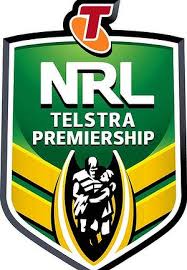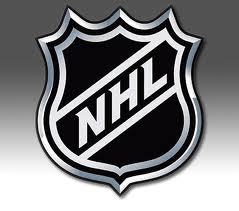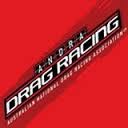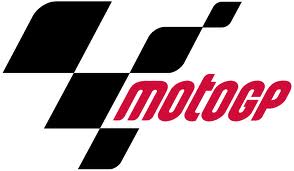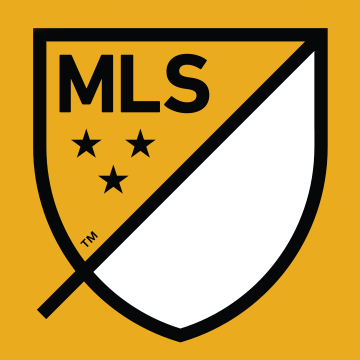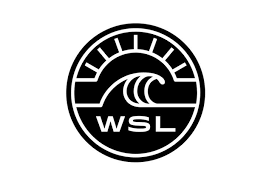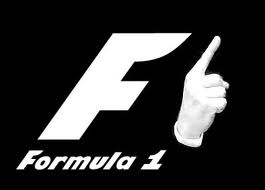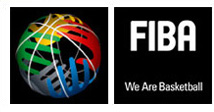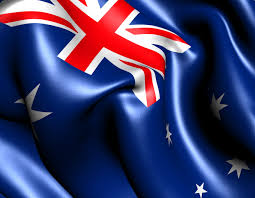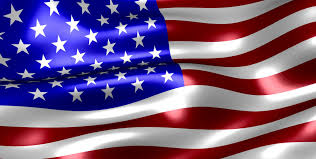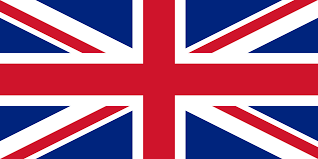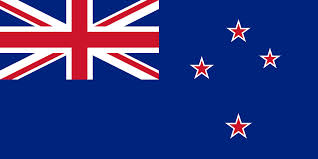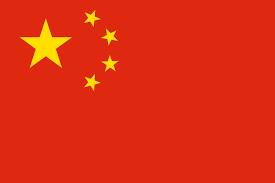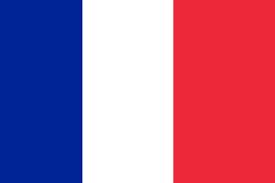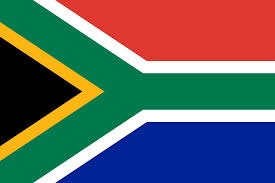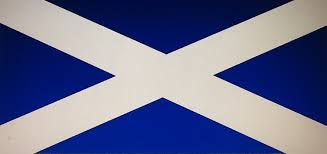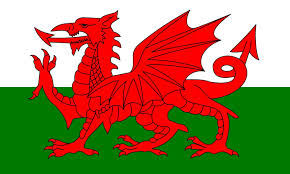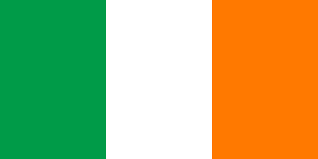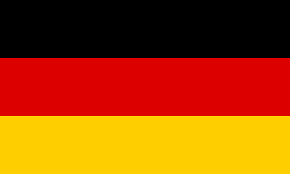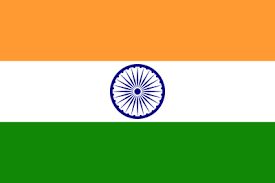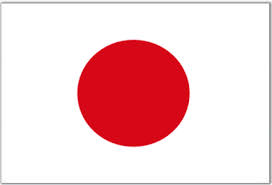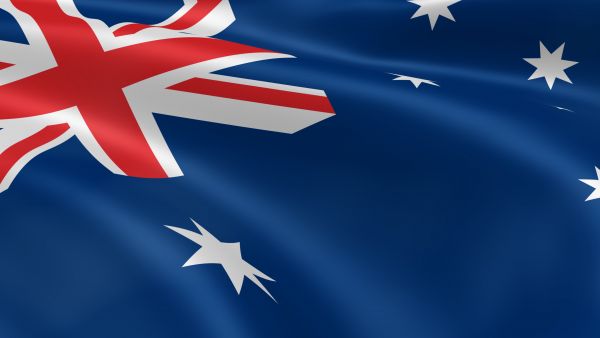International Olympic Committee (Multi Sports)
Latest News & Results
|
||
| March 15, 2018 | ||
|
The IOC, UN Women, UNESCO, P&G and NBC Sports are changing the conversation about women in sport On the margins of the 62nd Session of the United Nations Commission on the Status of Women, the International Olympic Committee (IOC), UN Women, UNESCO, Procter & Gamble and NBC hosted an event focusing on “Racing Towards Gender Equality: The media’s portrayal of women athletes and its effects on women’s participation in sports” on Wednesday 14 March. The event, moderated by acclaimed NBC Sports commentator Andrea Joyce, brought together athletes, gender equality experts, public and private sector representatives, media, and other Olympic Movement stakeholders to highlight the importance of balanced media portrayal in ensuring equal representation of women and men in sports. Featured speakers included Donna de Varona – two-time Olympic gold medallist in swimming, Emmy-winning sports broadcaster, activist and IOC Women in Sport Commission member – as well as Maia Shibutani – two-time Olympic bronze medallist, three-time World Championship medallist and two-time US national champion in ice dancing. “We are all here to change the conversation about women in sport,” said IOC Strategic Communications Director and event host Rebecca Lowell Edwards. “We cannot truly be ‘Faster, Higher, Stronger’ when half of us are not proportionally represented on the playing field, in an official uniform, in commissions and federations, or with a coach’s whistle. We know progress will take a true team effort, and that’s why we joined together today with wonderful partners, each with a superb track record of empowering women and girls around the world.” The event continued with perspectives from Donna de Varona and Maia Shibutani, leading Olympic athletes from two different generations. Both athletes expressed hope for the future of women in sport, highlighting the progress that has been made to remove barriers, and the need to do more. “I’ve been fortunate to have my brother as my skating partner,” commented Shibutani. “As soon as we step on the ice as a team, we know we are on an even playing field and respect each other. Having that support is amazing, and that’s what the standard should be.” “This discussion has been happening for a very long time and now is the time to act,” added de Varona. “We need a platform that drives this agenda, and the Olympic Movement is filling that void today. We’ve done great in the field of play, but need to do the same in leadership and decision-making.” The athletes’ discussion was followed by a panel featuring gender equality champions from public and private sector partners, including Khetsiwe Dlamini, UN Women Chief of Staff and acting Director of the Strategic Partnerships Division; Marc S. Pritchard, Chief Brand Officer, Procter & Gamble; and Saniye Gülser Corat, Director of the Division of Gender Equality, UNESCO. “We want to see Planet 50-50 – a gender-equal world - by 2030, which is the target date for the Sustainable Development Goals,” said Dlamini. “The race to gender equality by 2030 is enabled by sport. It's a race against poverty, hunger, lack of access to health, education and leadership. It's a race toward gender equality. It's urgent that we finish the race. This means equal opportunities to play, equal pay, and equal representation of women and girls in sport. With the IOC, we make an unstoppable team.” Representing one of the leading private sector advocates for women’s empowerment, Pritchard talked about how P&G uses its advertising power to help eliminate gender bias. “We as a company decided to make a real difference in gender equality because we believe there should be equal representation, equal jobs, equal pay, equal respect,” he explained. “That’s when we committed to use our voice in advertising as a way to promote gender equality. Our goal is Ads can be a force for good because they can promote positive conversations, influence attitudes, and change behaviour to help make our world a better place. And, when the world is more equal, it leads to more growth.” “Only four per cent of sports media content is devoted to women’s sports, and only 12 per cent of sports news is presented by women,” continued Corat. “Sports coverage is hugely powerful in shaping norms and stereotypes about gender. The media has the ability to challenge these norms, covering more women’s competitions and training, including more women as sports broadcasters, and promoting a fair portrayal of sportspeople irrespective of gender.” The IOC has put gender equality at the centre of its mission and made great strides in advancing gender parity in the sporting arena and beyond. Today, more female athletes participate in the Olympic Games than ever before. As an example, the first edition of the Olympic Winter Games in Chamonix in 1924 featured just 13 women, all of them figure skaters. Almost a century later, at PyeongChang 2018, a record 1,242 female athletes were in action, making up 42 per cent of all the competitors. Recently, the IOC Executive Board approved 25 key recommendations from the IOC Gender Equality Review Project, which focus on changing the conversation about women in sport holistically – from participation to representation and decision-making. “The 25 recommendations are right on point in getting us to where we want to be,” said de Varona. “But change doesn’t come from just putting a policy out there. We need to make sure they are implemented successfully.” IOC’s event partners are also at the forefront of efforts to eliminate gender barriers using the power of sport. Among UN Women’s many initiatives, “One Win Leads to Another” builds the leadership skills of adolescent girls through quality sports programmes, improving their ability to influence decisions that impact their lives at all levels. P&G works with athletes and organisations globally, and creates ground-breaking campaigns like #LoveOverBias to spark conversations and raise greater awareness about gender equality. Through its involvement in the #SeeHer campaign, NBC Sports is committed to celebrating America’s female athletes and increasing their visibility across its platforms. On World Radio Day 2018, UNESCO and radio stations globally called for fairer coverage of sportswomen through their #HerMomentsMatter campaign, and are continuing the call through their Women Make the News initiative Her Headline. To watch key highlights from the 14 March event on media and gender equality, visit https://www.facebook.com/unwomen. To learn more about the IOC’s efforts in advancing gender equality, go to the IOC Gender Equality E-Platform. To participate in the social media conversation, use the hash tags #RacingtoGenderEquality and #IOCGenderEquality. ### IOC The International Olympic Committee was created in 1894 and remains committed over 100 years later to building a better world through sport. With the release of its latest report of the IOC Gender Equality Project and 25 Recommendations, the IOC continues to address the challenges of creating greater access and opportunities for women and girls to participate in sport, and thus ensure dialogue, action and change through gender equality. UN Women UN Women is the UN organisation dedicated to gender equality and the empowerment of women. A global champion for women and girls, UN Women also coordinates and promotes the UN system’s work in advancing gender equality, and in all deliberations and agreements linked to the 2030 Agenda, working to position gender equality as fundamental to the Sustainable Development Goals and a more inclusive world. UNESCO UNESCO (the United Nations Educational, Scientific and Cultural Organisation) is responsible for coordinating international cooperation in key areas to build peace in the minds of men and women. Gender equality is a global priority for UNESCO and inextricably linked to its efforts to promote free, independent and pluralistic media, including gender equality in media operations and content. P&G P&G (Procter and Gamble) serves consumers in over 180 countries around the world with one of the strongest portfolios of trusted, quality, leadership brands. With operations in 70 countries and a Worldwide Olympic Partner, P&G is working with athletes and organisations globally to help create a better world – free from gender bias and with an equal voice and equal representation for women and men – by using its voice, influence, reach and ground-breaking campaigns like #LoveOverBias to spark conversations and raise greater awareness about gender equality. NBC Sports Group NBC Sports Group serves sports fans 24/7 with premier live events, insightful studio shows, and compelling original programming. The sports media company consists of NBC Sports, NBC Olympics, NBCSN, Golf Channel, NBC Sports Regional Networks, NBC Sports Radio and NBC Sports Digital, which includes NBCSports.com, NBCOlympics.com, GolfChannel.com, the digital assets of the NBC Sports Regional Networks, Rotoworld, the NBC Sports Talk franchise, multiple apps, and two transactional sports businesses, GolfNow and SportsEngine. |
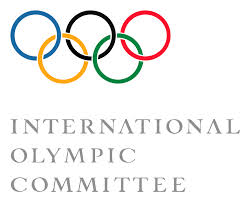

|
||
| February 22, 2018 | ||
|
PyeongChang Olympians elect two new members to IOC Athletes’ Commission Emma Terho from Finland (ice hockey) and Kikkan Randall from USA (cross-country skiing) have been elected to the International Olympic Committee (IOC)’s Athletes’ Commission by their fellow Olympians at the Olympic Winter Games PyeongChang 2018. With a record participation rate of 83.86 per cent, athletes at the Olympic Winter Games made their way to the voting booths in the Athlete365 Space in both the PyeongChang and Gangneung Olympic Villages to cast their votes. Terho was elected with 1,045 votes, followed by Randall with 831 votes. For the full list of results, click here. The announcement was made today at the Olympic Village by IOC Executive Board Member and Chair of the Election Committee Nicole Hoevertsz, Swedish IOC Athletes’ Commission member Stefan Holm and IOC Sports Director Kit McConnell. Terho represented Finland at five Olympic Winter Games, winning bronze at Nagano 1998 and Vancouver 2010. Randall, meanwhile, is currently competing in her fifth Winter Games in PyeongChang. Earlier this week, she won the USA's first-ever Olympic gold medal in cross-country skiing, after topping the podium in the team sprint event alongside Jessica Diggins. Following approval by the IOC Session, to take place on the last day of the Games, Terho and Randall will become Commission and IOC Members for an eight-year term, representing their fellow Olympians on the IOC Athletes’ Commission, which serves as a link between the athletes and the IOC. They will replace current IOC Athletes’ Commission Chair Angela Ruggiero and Adam Pengilly, whose terms are finishing following their election at the Olympic Winter Games Vancouver 2010. All 2,930 athletes competing in PyeongChang were eligible to vote and had six candidates to choose from representing three continents and five different sports. They were asked to cast votes for two different athletes from two different sports. Prior to the start of the Olympic Winter Games PyeongChang 2018, Kirsty Coventry was appointed as the incoming Chair of the Athletes’ Commission following a vote of confidence from her fellow members. Coventry has been a member of the IOC Athletes’ Commission since 2012, and has played a significant role in developing the Commission’s new strategy, which was presented by the current Chair, Angela Ruggiero, at the International Athletes’ Forum last November. Also confirmed recently was the appointment of Danka Bartekova as the Vice Chair of the Commission. Bartekova has been instrumental in the delivery of Athlete365, a new overarching brand that brings together all the IOC athlete-focused communication strands. Visit: www.olympic.org/athlete365 to learn more |

|
||
| January 31, 2018 | ||
|
Winning medal design to light up Buenos Aires 2018 The winning entry of the International Olympic Committee (IOC)'s Medal Design Competition for the Youth Olympic Games Buenos Aires 2018 has been chosen. It was submitted by 18-year-old Muhamad Farid Husen from Indonesia, and is entitled "Fireworks of Victory".Chosen from close to 300 entries from over 50 nations, from Algeria to Venezuela, the winning design was picked by a panel of judges made up of Young Change-Makers, Young Reporters and IOC Members. Medal Design Competition winner Muhamad Farid Husen commented on his win: "It is really an honour for me to be a little part of Youth Olympic Games. I can't describe how my feeling is…being the designer of the medals which is used by all the winners of the Youth Olympics is an honour for me. My dream came true." He said of his design: "This medal was inspired by fireworks. Fireworks representing the excitement and the glory of the Youth Olympic Games where all nations come together as one to participate and celebrate. Fireworks fly to the sky, giving the reflection of how the young athletes are reaching their dreams." IOC Member and Olympian, judge Aya Medany commented: "Muhamad's design really touched my heart as an athlete. The most important thing is to celebrate after winning, and it's nothing better than to celebrate with fireworks. It's also amazing to have the winner the same age as the participants in the YOG." Competition judge and Young Change-Maker, Emily A. Yeh said: "The winning design gives an energetic feel with unlimited possibilities, which is also what we hope to see from the YOG athletes and the young generation." Fellow judge and Young Change-Maker, Nina Balaban said: "This has been an amazing project. [It is] empowering the young artists to spread their wings and learn more about the Olympic values." Winner Muhamad, the youngest-ever entrant to win the competition since the first edition in 2010, will attend the Youth Olympic Games Buenos Aires 2018, including the Opening Ceremony, and witness first-hand athletes being awarded medals featuring his design. In addition, he will receive his own set of medals and a Samsung tablet. The judges also selected two runner-up designs. In second place was "Making Waves" by Patrick Nair, 20, from the USA; and in third place "Victory Road" by 28-year-old Damien Perrin from Switzerland. For more information on the Youth Olympic Games and opportunities to get involved go to www.buenosaires2018.com. |
|
||
| January 31, 2018 | ||
|
Winning medal design to light up Buenos Aires 2018 The winning entry of the International Olympic Committee (IOC)'s Medal Design Competition for the Youth Olympic Games Buenos Aires 2018 has been chosen. It was submitted by 18-year-old Muhamad Farid Husen from Indonesia, and is entitled "Fireworks of Victory".Chosen from close to 300 entries from over 50 nations, from Algeria to Venezuela, the winning design was picked by a panel of judges made up of Young Change-Makers, Young Reporters and IOC Members. Medal Design Competition winner Muhamad Farid Husen commented on his win: "It is really an honour for me to be a little part of Youth Olympic Games. I can't describe how my feeling is…being the designer of the medals which is used by all the winners of the Youth Olympics is an honour for me. My dream came true." He said of his design: "This medal was inspired by fireworks. Fireworks representing the excitement and the glory of the Youth Olympic Games where all nations come together as one to participate and celebrate. Fireworks fly to the sky, giving the reflection of how the young athletes are reaching their dreams." IOC Member and Olympian, judge Aya Medany commented: "Muhamad's design really touched my heart as an athlete. The most important thing is to celebrate after winning, and it's nothing better than to celebrate with fireworks. It's also amazing to have the winner the same age as the participants in the YOG." Competition judge and Young Change-Maker, Emily A. Yeh said: "The winning design gives an energetic feel with unlimited possibilities, which is also what we hope to see from the YOG athletes and the young generation." Fellow judge and Young Change-Maker, Nina Balaban said: "This has been an amazing project. [It is] empowering the young artists to spread their wings and learn more about the Olympic values." Winner Muhamad, the youngest-ever entrant to win the competition since the first edition in 2010, will attend the Youth Olympic Games Buenos Aires 2018, including the Opening Ceremony, and witness first-hand athletes being awarded medals featuring his design. In addition, he will receive his own set of medals and a Samsung tablet. The judges also selected two runner-up designs. In second place was "Making Waves" by Patrick Nair, 20, from the USA; and in third place "Victory Road" by 28-year-old Damien Perrin from Switzerland. For more information on the Youth Olympic Games and opportunities to get involved go to www.buenosaires2018.com. |

|
||
| January 10, 2018 | ||
|
IOC President to convene "North and South Korean Olympic Participation Meeting" The IOC President, Thomas Bach, today called for a meeting to decide on the participation of athletes from the National Olympic Committee (NOC) of the Democratic People’s Republic of Korea (DPRK) at the Olympic Winter Games PyeongChang 2018. It follows the joint proposals (yesterday) by the governments of the Republic of Korea (ROK) and the Democratic People’s Republic of Korea. In order to decide on the proposals, the IOC will convene a four-party meeting on Saturday 20 January 2018 at the IOC headquarters in Lausanne, Switzerland. The participants will be a delegation from the PyeongChang 2018 Organising Committee and delegations from the NOCs of the Republic of Korea and the Democratic People’s Republic of Korea, all led by their respective presidents, as well as high-ranking government officials and the IOC Members in both countries. The meeting will be chaired by the IOC President. The meeting will have to take a series of essential decisions, including the number and names of athletes and officials from the NOC of the DPRK, since all the deadlines for registration have already passed. The IOC will also have to decide on the format of such participation, including questions related to the official protocol (flag, anthem, ceremonies, uniform, etc.). “I warmly welcome the joint proposals by the governments of the ROK and DPRK, which have been applauded by so many other governments worldwide. This is a great step forward in the Olympic spirit and in the spirit of the Olympic Truce Resolution passed by the General Assembly of the United Nations. Now the IOC must take the decisions to make this political commitment a reality,” said the IOC President. ### The International Olympic Committee is a not-for-profit independent international organisation made up of volunteers, which is committed to building a better world through sport. It redistributes more than 90 per cent of its income to the wider sporting movement, which means that every day the equivalent of 3.4 million US dollars goes to help athletes and sports organisations at all levels around the world. |

|
||
| December 22, 2017 | ||
|
IOC sanctions 11 Russian athletes as part of Oswald Commission findings Today, the International Olympic Committee (IOC) has published 11 new decisions from the Oswald Commission hearings, which are being conducted in the context of the Sochi 2014 forensic and analytic doping investigations.As a result, the following Russian athletes have been sanctioned: - Speed skaters Ivan SKOBREV and Artem KUZNETCOV - Lugers Tatyana IVANOVA and Albert DEMCHENKO, silver medallists in Sochi 2014 - Cross-country skiers Nikita KRYUKOV, Alexander BESSMERTNYKH and Natalia MATVEEVA - Bobsledders Liudmila UDOBKINA and Maxim BELUGIN - Ice hockey players Tatiana BURINA and Anna SHCHUKINA To date, the number of cases opened by the Disciplinary Commission has reached 46 after additional findings from the re-analyses. All 46 of them have been handled, of which three have been filed. As some investigations are still ongoing (notably the forensic analysis of the bottles), it cannot be excluded that there might be new elements that would justify opening further new cases and holding more hearings. The IOC Disciplinary Commission, composed for these 11 cases of Mr Denis Oswald (Chairman), Mrs Gunilla Lindberg and Mr Patrick Baumann, decided the following: Maxim BELUGIN, Alexander BESSMERTNYKH, Tatiana BURINA, Albert DEMCHENKO, Tatyana IVANOVA, Nikita KRYUKOV, Artem KUZNETCOV, Natalia MATVEEVA, Anna SHCHUKINA, Ivan SKOBREV, and Liudmila UDOBKINA are found to have committed anti-doping rule violations pursuant to Article 2 of The International Olympic Committee Anti-Doping Rules applicable to the XXII Olympic Winter Games in Sochi, in 2014, and are disqualified from the events in which they participated. In addition, the 11 athletes are declared ineligible to be accredited in any capacity for all editions of the Games of the Olympiad and the Olympic Winter Games subsequent to the Olympic Winter Games Sochi 2014. The reasoning for these decisions will be communicated in due course. For further details, please consult the following factsheet. The Disciplinary Commission, chaired by IOC Member Denis Oswald, is responsible for investigating the alleged doping violations by individual Russian athletes. Therefore, all the samples collected from Russian athletes at the Olympic Winter Games Sochi 2014 that were available to the IOC were re-analysed. This had two goals: to further review the samples for evidence of doping, and separately to determine if the samples themselves or the bottles were manipulated or tampered with. Due to the nature and complexity of the cases, this thorough, comprehensive and time-consuming process has taken several months and had to involve external forensic experts, who had to develop a legally-defendable methodology for all the cases under the jurisdiction of the Oswald Commission. Due process has to be followed, and re-analysis is still underway. The IOC showed its determination to protect clean athletes from the very beginning of the case, in July 2016, by immediately establishing the Oswald Commission and the Schmid Commission, following the publication of the McLaren report. The IOC took this extra measure as Prof. McLaren did not have the authority to bring forward Anti-Doping Rule Violation (ADRV) cases against individual athletes. The Oswald Commission has announced that all hearings for active athletes who could qualify for the Olympic Winter Games PyeongChang 2018 will be completed shortly. In accordance with the World Anti-Doping Code, confidentiality has to be respected in the interests of the athletes concerned. The purpose of this work is to ensure that the International Federations (IFs) have the necessary tools to protect the qualification competitions. The outcome of the hearings will be announced as soon as possible after each individual hearing. This will allow the IFs to follow up with their own disciplinary hearings immediately, and to take the athletes concerned out of the qualification system as soon as possible. |
|
||
| December 22, 2017 | ||
|
IOC sanctions 11 Russian athletes as part of Oswald Commission findings Today, the International Olympic Committee (IOC) has published 11 new decisions from the Oswald Commission hearings, which are being conducted in the context of the Sochi 2014 forensic and analytic doping investigations.As a result, the following Russian athletes have been sanctioned: - Speed skaters Ivan SKOBREV and Artem KUZNETCOV - Lugers Tatyana IVANOVA and Albert DEMCHENKO, silver medallists in Sochi 2014 - Cross-country skiers Nikita KRYUKOV, Alexander BESSMERTNYKH and Natalia MATVEEVA - Bobsledders Liudmila UDOBKINA and Maxim BELUGIN - Ice hockey players Tatiana BURINA and Anna SHCHUKINA To date, the number of cases opened by the Disciplinary Commission has reached 46 after additional findings from the re-analyses. All 46 of them have been handled, of which three have been filed. As some investigations are still ongoing (notably the forensic analysis of the bottles), it cannot be excluded that there might be new elements that would justify opening further new cases and holding more hearings. The IOC Disciplinary Commission, composed for these 11 cases of Mr Denis Oswald (Chairman), Mrs Gunilla Lindberg and Mr Patrick Baumann, decided the following: Maxim BELUGIN, Alexander BESSMERTNYKH, Tatiana BURINA, Albert DEMCHENKO, Tatyana IVANOVA, Nikita KRYUKOV, Artem KUZNETCOV, Natalia MATVEEVA, Anna SHCHUKINA, Ivan SKOBREV, and Liudmila UDOBKINA are found to have committed anti-doping rule violations pursuant to Article 2 of The International Olympic Committee Anti-Doping Rules applicable to the XXII Olympic Winter Games in Sochi, in 2014, and are disqualified from the events in which they participated. In addition, the 11 athletes are declared ineligible to be accredited in any capacity for all editions of the Games of the Olympiad and the Olympic Winter Games subsequent to the Olympic Winter Games Sochi 2014. The reasoning for these decisions will be communicated in due course. For further details, please consult the following factsheet. The Disciplinary Commission, chaired by IOC Member Denis Oswald, is responsible for investigating the alleged doping violations by individual Russian athletes. Therefore, all the samples collected from Russian athletes at the Olympic Winter Games Sochi 2014 that were available to the IOC were re-analysed. This had two goals: to further review the samples for evidence of doping, and separately to determine if the samples themselves or the bottles were manipulated or tampered with. Due to the nature and complexity of the cases, this thorough, comprehensive and time-consuming process has taken several months and had to involve external forensic experts, who had to develop a legally-defendable methodology for all the cases under the jurisdiction of the Oswald Commission. Due process has to be followed, and re-analysis is still underway. The IOC showed its determination to protect clean athletes from the very beginning of the case, in July 2016, by immediately establishing the Oswald Commission and the Schmid Commission, following the publication of the McLaren report. The IOC took this extra measure as Prof. McLaren did not have the authority to bring forward Anti-Doping Rule Violation (ADRV) cases against individual athletes. The Oswald Commission has announced that all hearings for active athletes who could qualify for the Olympic Winter Games PyeongChang 2018 will be completed shortly. In accordance with the World Anti-Doping Code, confidentiality has to be respected in the interests of the athletes concerned. The purpose of this work is to ensure that the International Federations (IFs) have the necessary tools to protect the qualification competitions. The outcome of the hearings will be announced as soon as possible after each individual hearing. This will allow the IFs to follow up with their own disciplinary hearings immediately, and to take the athletes concerned out of the qualification system as soon as possible. |

|
||
| December 18, 2017 | ||
|
IOC sanctions one Russian athlete, and closes one case as part of Oswald Commission findings Today, the International Olympic Committee (IOC) has published one new decision from the Oswald Commission hearings, which are being conducted in the context of the Sochi 2014 forensic and analytic doping investigations. As a result, the Russian bobsledder Alexey VOEVODA, double gold medallist in Sochi 2014, has been sanctioned. The case opened against a second athlete has been closed without a sanction. More hearings concerning other athletes will be held over the next few weeks. To date, the number of cases opened by the Disciplinary Commission has reached 46 after additional findings from the re-analyses. Thirty-five of them have already been handled, of which three have been filed. As some investigations are still ongoing (notably the forensic analysis of the bottles), it cannot be excluded that there might be new elements that would justify opening further new cases. The IOC Disciplinary Commission, composed for this case of Mr Denis Oswald (Chairman), Mr Juan Antonio Samaranch and Mr Tony Estanguet, decided the following:
The decision on Alexey VOEVODA is available here. The reasoning for these decisions will be communicated in due course. In addition to this decision, the IOC Disciplinary Commission has issued a third decision in which it found that the elements in the file and the conclusions of the investigations conducted so far were not sufficient to establish an anti-doping rule violation. Accordingly, the disciplinary proceedings opened against the athlete were terminated and the case filed. In order to protect the rights of the athlete, the identity of the athlete concerned will not be disclosed and the decision will not be published at this point in time. For further details, please consult the following factsheet. The Disciplinary Commission, chaired by IOC Member Denis Oswald, is responsible for investigating the alleged doping violations by individual Russian athletes. Therefore, all the samples collected from Russian athletes at the Olympic Winter Games Sochi 2014 that were available to the IOC were re-analysed. This had two goals: to further review the samples for evidence of doping, and separately to determine if the samples themselves or the bottles were manipulated or tampered with. Due to the nature and complexity of the cases, this thorough, comprehensive and time-consuming process has taken several months and had to involve external forensic experts, who had to develop a legally-defendable methodology for all the cases under the jurisdiction of the Oswald Commission. Due process has to be followed, and re-analysis is still underway. The IOC showed its determination to protect clean athletes from the very beginning of the case, in July 2016, by immediately establishing the Oswald Commission and the Schmid Commission, following the publication of the McLaren report. The IOC took this extra measure as Prof. McLaren did not have the authority to bring forward Anti-Doping Rule Violation (ADRV) cases against individual athletes. The Oswald Commission has announced that all hearings for active athletes who could qualify for the Olympic Winter Games PyeongChang 2018 will be completed shortly. In accordance with the World Anti-Doping Code, confidentiality has to be respected in the interests of the athletes concerned. The purpose of this work is to ensure that the International Federations (IFs) have the necessary tools to protect the qualification competitions. The outcome of the hearings will be announced as soon as possible after each individual hearing. This will allow the IFs to follow up with their own disciplinary hearings immediately, and to take the athletes concerned out of the qualification system as soon as possible. |

|
||
| December 5, 2017 | ||
|
IOC suspends Russian NOC and creates a path for clean individual athletes to compete in PyeongChang 2018 under the Olympic Flag The IOC Executive Board today studied and discussed the findings of the Commission led by the former President of Switzerland, Samuel Schmid, addressing the systematic manipulation of the anti-doping system in Russia. This report also addresses in particular the manipulation at the anti-doping laboratory at the Olympic Winter Games Sochi 2014 which targeted the Olympic Games directly. Over 17 months of extensive work, the Schmid Commission gathered evidence and information and held hearings with all the main actors. Due process, to which every individual and every organisation is entitled, was followed. This opportunity was not available to the IOC prior to the Olympic Games Rio 2016. The conclusions of the Schmid Report, on both factual and legal aspects, confirmed “the systemic manipulation of the anti-doping rules and system in Russia, through the Disappearing Positive Methodology and during the Olympic Winter Games Sochi 2014, as well as the various levels of administrative, legal and contractual responsibility, resulting from the failure to respect the respective obligations of the various entities involved”. As a consequence, the Schmid Commission recommended to the IOC EB:
After discussing and approving the Schmid Report, the IOC EB took the following decision:
How the athletes will be chosen: To invite individual Russian athletes to the Olympic Winter Games PyeongChang 2018 according to the following guidelines:
IOC President Thomas Bach said: "This was an unprecedented attack on the integrity of the Olympic Games and sport. The IOC EB, after following due process, has issued proportional sanctions for this systemic manipulation while protecting the clean athletes. This should draw a line under this damaging episode and serve as a catalyst for a more effective anti-doping system led by WADA." He continued: "As an athlete myself, I feel very sorry for all the clean athletes from all NOCs who are suffering from this manipulation. Working with the IOC Athletes’ Commission, we will now look for opportunities to make up for the moments they have missed on the finish line or on the podium." |

|
||
| November 30, 2017 | ||
|
IOC sanctions two athletes for failing anti-doping tests at London 2012 The protection of clean athletes and the fight against doping are top priorities for the International Olympic Committee (IOC), as outlined in Olympic Agenda 2020, the IOC's strategic roadmap for the future of the Olympic Movement. Following the findings of the completed Independent Person Report in December 2016, the IOC has examined all samples collected from Russian athletes during the Olympic Games London 2012. These re-analyses and subsequent disciplinary hearings are now over. As part of this process, the IOC today announced that two additional Russian athletes have been disqualified from the Olympic Games London 2012. The details follow. Anna NAZAROVA, 31, of the Russian Federation, competing in the women's long jump event in which she ranked 5th and for which she was awarded a diploma, has been disqualified from the Olympic Games London 2012. Re-analysis of Nazarova's samples from London 2012 resulted in a positive test for the prohibited substance dehydrochlormethyltestosterone (turinabol). The IOC Disciplinary Commission, composed for this case of Mr Denis Oswald (Chairman), Mrs Gunilla Lindberg and Dr Ugur Erdener, decided the following:
The full decision is available here.
Yulia GUSHCHINA, 34, of the Russian Federation, competing in the women's 400m event in which she ranked 15th, and competing in the women's 4x400m relay event in which she ranked 2nd,, for which she and her teammates ranked 2nd and for which they were awarded a silver medal, has been disqualified from the Olympic Games London 2012. Re-analysis of Gushchina's samples from London 2012 resulted in a positive test for the prohibited substances dehydrochlormethyltestosterone (turinabol) and stanozolol. The IOC Disciplinary Commission, composed for this case of Mr Denis Oswald (Chairman), Mrs Gunilla Lindberg and Dr Ugur Erdener, decided the following:
The full decision is available here.
Out of the 226 samples collected from Russian athletes who participated to the Olympic Games London 2012 that were re-analysed, 21 sanctions have been issued by the disciplinary commission. The IOC's re-analysis programme for London 2012 samples is ongoing. To date, 584 samples from athletes who participated in the Olympic Games London 2012 (including Russian athletes) have been re-analysed and 49 Anti-Doping Rule violations were found. One of them is Nevin YAVIT (TUR), who participated in the women's 100m hurdles event at the Olympic Games London 2012, in which she ranked 5th and for which she was awarded a diploma. The result of the re-analysis of the A sample constitutes an Adverse Analytical Finding as it showed the presence of a prohibited substance or its metabolites or marker. The IOC was informed of the decision made with regard to the application of the IAAF Anti-Doping Regulation, according to which all the athlete's results from 28 June 2012 to the start of a four-year ineligibility period were annulled, and therefore decided to not proceed further with the case. In applying Art. 15.1 of the World Anti-Doping Code, the IOC has recognised this above decision and acknowledged the fact that the results obtained by the athlete at the Olympic Games London 2012 had already been annulled. The annulment consequently leads to the correction of the results and the return of the diploma. The IAAF has already corrected the results accordingly. In order to complete the implementation of the consequences of the annulment, the athlete has been requested to return immediately to the IOC or to the Turkish Olympic Committee the diploma awarded to her in connection with the above-mentioned Olympic event. The Turkish Olympic Committee has been required to assist the IOC in securing the implementation of the above. For further details, please consult the following factsheet.
(1) The results of the relay event have already been modified as a result of the decision issued in the matter of Ms Antonina KRIVOSHAPKA. (2) The consequences of the disqualification of the team results shall be implemented based on the decision issued in the matter of Ms Antonina KRIVOSHAPKA. |

|
||
| November 29, 2017 | ||
|
IOC sanctions three Russian athletes as part of Oswald Commission findings Today, the International Olympic Committee (IOC) has published new decisions from the Oswald Commission hearings, which are being conducted in the context of the Sochi 2014 forensic and analytic doping investigations. As a result, three Russian bobsledders, Aleksandr KAS’YANOV, Aleksei PUSHKAREV and IIvir KHUZIN, have been sanctioned. More hearings concerning other athletes will be held over the next few weeks. The IOC Disciplinary Commission, composed for these three cases of Mr Denis Oswald (Chairman), Mr Juan Antonio Samaranch and Mr Tony Estanguet, decided the following: Aleksandr KAS’YANOV, Aleksei PUSHKAREV and IIvir KHUZIN are found to have committed anti-doping rule violations pursuant to Article 2 of The International Olympic Committee Anti-Doping Rules applicable to the XXII Olympic Winter Games in Sochi, in 2014, and are disqualified from the events in which they participated. In addition, the four athletes are declared ineligible to be accredited in any capacity for all editions of the Games of the Olympiad and the Olympic Winter Games subsequent to the Olympic Winter Games Sochi 2014. The reasoning for these decisions will be communicated in due course. The Disciplinary Commission, chaired by IOC Member Denis Oswald, is responsible for investigating the alleged doping violations by individual Russian athletes. Therefore, all the samples collected from Russian athletes at the Olympic Winter Games Sochi 2014 that were available to the IOC were re-analysed. This had two goals – to further review the samples for evidence of doping, and separately to determine if the samples themselves or the bottles were manipulated or tampered with. Due to the nature and complexity of the cases, this thorough, comprehensive and time-consuming process has taken several months and had to involve external forensic experts, who had to develop a legally-defendable methodology for all the cases under the jurisdiction of the Disciplinary Commission. Due process has to be followed, and re-analysis is still underway. The IOC showed its determination to protect clean athletes from the very beginning of the case, in July 2016, by immediately establishing the Disciplinary Commission and the Inquiry Commissions, following the publication of the McLaren report. The IOC took this extra measure since Prof. McLaren did not have the authority to bring forward Anti-Doping Rule Violation (ADRV) cases against individual athletes. After receiving the results from the final McLaren report in December 2016, the IOC opened proceedings against the 28 Russian athletes mentioned in the report, which are now being heard by the Oswald Commission. The Oswald Commission has announced that all hearings for active athletes who could qualify for the Olympic Winter Games PyeongChang 2018 will be completed shortly. In accordance with the World Anti-Doping Code, confidentiality has to be respected in the interests of the athletes concerned. The purpose of this work is to ensure that the International Federations (IFs) have the necessary tools to protect the qualification competitions. The outcome of the hearings will be announced as soon as possible after each individual hearing. This will allow the IFs to follow up with their own disciplinary hearings immediately, and to take the athletes concerned out of the qualification system as soon as possible. The decision with regard to the participation of Russian athletes in the Olympic Winter Games PyeongChang 2018 will be taken by the IOC Executive Board in December based on the findings of the IOC Disciplinary Commission chaired by Samuel Schmid, a former President of Switzerland. |
 - All Sports
- All Sports





